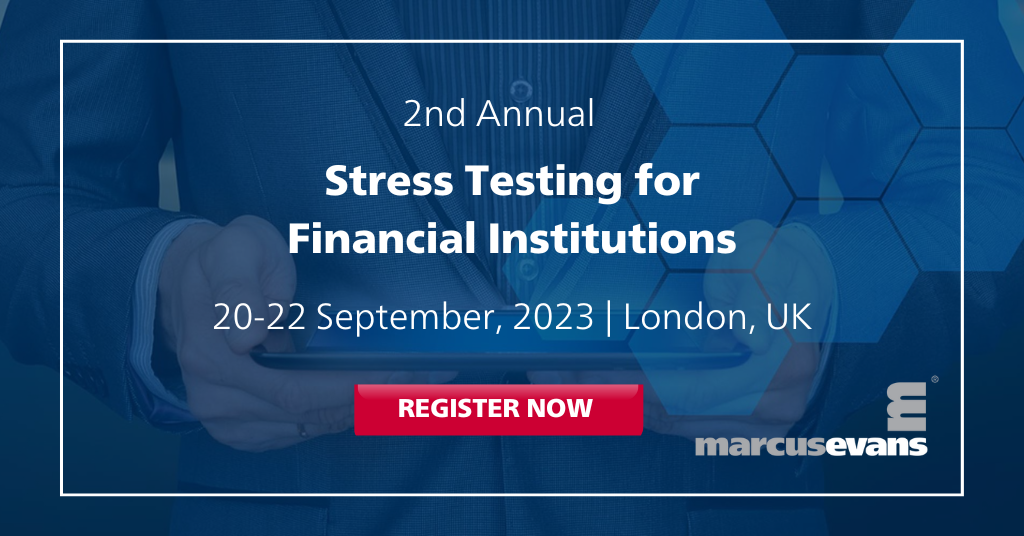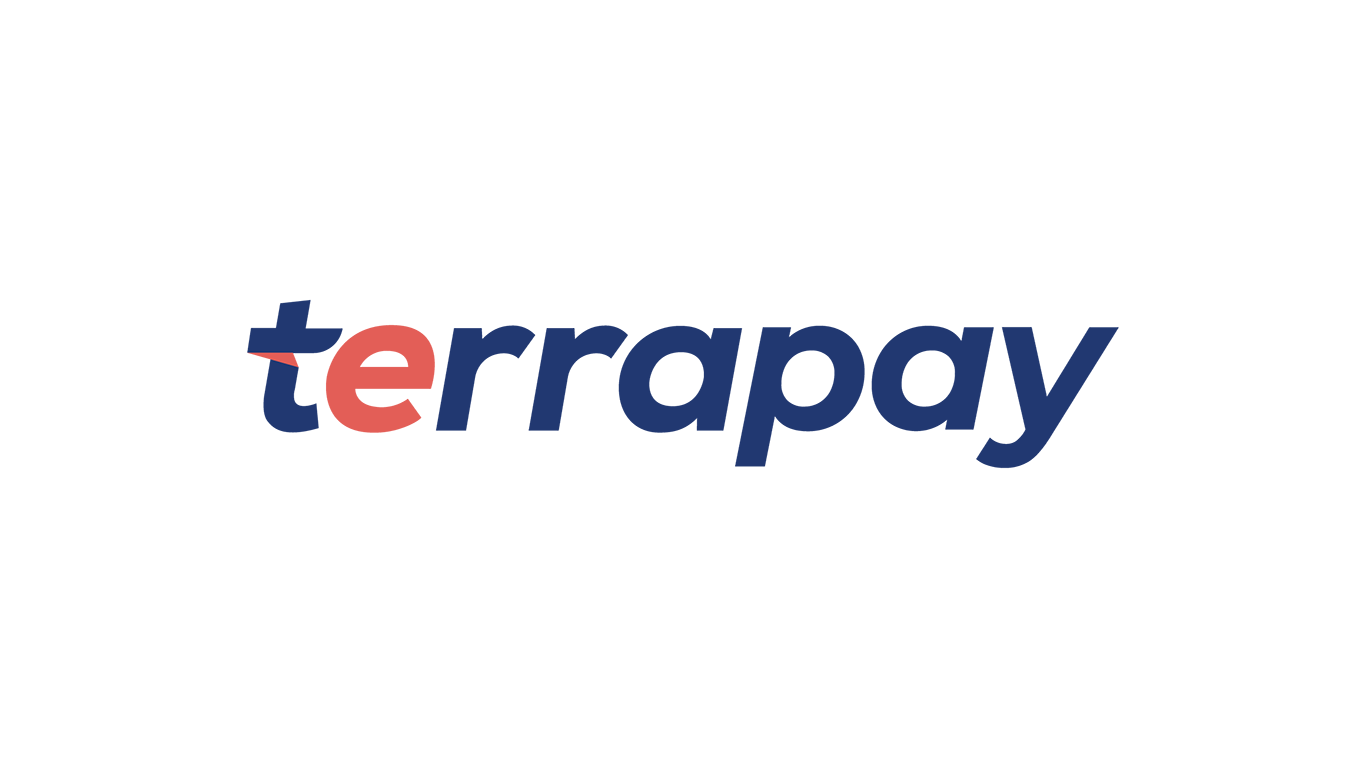Published
- 02:00 am

PCI Pal®, the global SaaS provider of secure payment solutions for business communications, has been ranked in the Growth Index Top 100 for the second consecutive year. The annual list showcases the UK companies that are achieving the fastest growth in revenue over a preceding two-year period.
PCI Pal achieved average annual sales growth of 64.79% according to the figures by Growth Index (GX), which are based on a rigorous financial analysis of the annual growth of a total of 32,000 companies in the UK over a two-year period.
From consumer goods to tech start-ups, fintech to manufacturing, Growth Index is sector agnostic, featuring many of the most successful, high-growth companies in the UK. The independent analysis highlights those businesses that have really stood out from the crowd, revealing unique insights into the visionaries behind their success.
James Barham, CEO of PCI Pal, said: “To be recognised by Growth Index, for the second consecutive year, as one of the UK’s fastest growing companies is a fantastic achievement and is a testament to the efforts of our talented team.
“We have delivered another strong period of growth, driven by our market-leading partner eco-system, as well as our capability to deliver our patented cloud solutions in a light-touch way, on a truly global basis.”
PCI Pal’s cloud-based payment solutions are trusted by an extensive and fast-growing customer and partner base. Customers include well-known brands such as Virgin Atlantic, Michelin, Autotrader, as well as a strong presence in government contracts. Partners include Genesys, Talkdesk, Amazon Connect, Worldpay, 8×8, Vonage, Freshworks, and Capita.
Orlando Martins, founder of Growth Index and ORESA comments, “The leaders of these companies that experienced rapid growth between 2019 and 2023 have faced unprecedented challenges due to the aftermath of Covid and Brexit, resulting in highly unusual business conditions. In the past year, they have also had to contend with four major obstacles: inflation, interest rates, the threat of a recession, and low international trade figures, all of which have slowed decision-making.
“However, despite these challenges, high employment rates and resilient consumers have given rise to a new era of growth and equity, with business leaders, investors, and the public increasingly focused on building a sustainable and beneficial UK economy in every region. This is great news for the incredible visionaries and companies that appear on our list.”
Related News
- 09:00 am

Human Interest, a fast-growing fintech and 401(k) software provider, has been recognized as a Top Rated 401(k) provider by G2 and TrustRadius, in addition to winning a Silver Stevie® Award for Achievement in Customer Satisfaction. In the last year, Human Interest has seen strong customer growth, eclipsing 15,000 customers, representing 300% customer and revenue growth. Recognitions include:
G2: Human Interest is the top rated 401(k) software and secured a prominent place in the “Leaders Quadrant” on G2, the world’s largest tech marketplace for comprehensive software reviews. In addition to overall top position in the 401(k) software category, Human Interest exceeded the average score in the following categories: Ease of Use, Quality of Support, and Ease of Setup.
TrustRadius: Human Interest is named a Top Rated 401(k) provider by TrustRadius for 2023, in addition to being recognized for its feature set, value for price, and the relationships built with their customers.
Stevie® Award for Achievement in Customer Satisfaction: Human Interest secured a Silver Stevie® Award from the American Business Awards acknowledging its exceptional service.
The feedback received from the American Business Awards reflected the caliber of Human Interest’s customer-centric approach. “As a judge, I was impressed with Human Interest’s innovative approach to providing high-quality retirement benefits plans for small and medium-sized businesses. Their team demonstrated a deep understanding of the challenges faced by these businesses, and their technology solutions were highly effective and user-friendly. Their customer support was exceptional, and they provided valuable guidance and support to their clients throughout the process. Overall, I highly recommend Human Interest to any business seeking top-quality retirement benefits plans for their employees.”
Rakesh Mahajan, Chief Revenue Officer at Human Interest added, “We have secured these prestigious awards because of our team’s laser-focus on providing our customers with exemplary service in conjunction with our tech-forward platform. We have big aspirations to revolutionize the retirement industry and are committed to pushing the bounds of what customers come to expect from a 401(k) provider and this is just the beginning. I am excited to share that we are opening our second office in Utah’s ‘Silicon Slopes’ to deliver an entirely U.S.-based customer experience.”
Related News
- 02:00 am

Medius, a leading provider of AP automation, today announces its updated Supplier Onboarding tool, to save customers valuable time in managing supplier information and relationships, to increase efficiency and reduce risk.
Supplier Management software integrates with both payables and procurement processes, to provide an end-to-end solution that enables customers to manage supplier information, lifecycle, performance, and risk all in one place.
Responding to customers’ needs and changes in the market, Medius has updated its supplier onboarding solution, to help customers quickly onboard new suppliers and easily maintain accurate supplier data.
The Medius Supplier Portal, a self-service portal for suppliers, provides a secure management system based on a supplier network to simplify business processes, communication, and to provide enhanced efficiency for spend management. Importantly, suppliers can register, record, and update their details in a single, cloud-based location, helping customers gain control and visibility of all supplier data.
Ultimately, Medius’s supplier portal will save customers time, while also helping them have complete control of supplier data, while reducing the risk of fraud by flagging suppliers that don’t have appropriate accreditations in place, and ensuring master data remains accurate and compliant.
Daniel Ball, EVP Product, Medius, says: “There’s a lot of talk in the industry about AI, and autonomous and touchless processing of invoices - but the reality is that many businesses, regardless of size, location, or industry, still receive invoices out of the blue for any service or product that has been bought by anyone within a business. This process is still run largely offline, and when these invoices are received new suppliers have to be registered and onboarded - leaving little to no paper trail, and taking place in a manual and opaque manner, detached from other parts of the business.
Ultimately, this process and lack of technological innovation in supplier onboarding leaves businesses open to fraud, and less able to control spend. This is why we’ve updated the supplier onboarding solution for Medius customers - increasing efficiency and reducing risk.”
The new supplier onboarding solution will be rolled-out to new customers and for those renewing their Medius subscription. The solution will be available globally.
Simon Madders, Project Implementation Manager, Mitchells & Butlers says: “Our procurement teams can be confident that all information provided by the supplier is captured correctly, quickly and efficiently, and approved via the appropriate channels.”
Related News
- 07:00 am

Implement best practices within regulatory, climate and internal stress testing, adapt to macroeconomic conditions, and effectively manage and utilise data to build a best-in-class stress testing framework
Stress testing continues to be a top priority for financial institutions, both from a regulatory standpoint and from a business strategy perspective. The challenging macro environment with changing interest rates and inflation are all driving more focus on stress testing. Banks want to be able to have a forward-thinking strategy based on stress testing results. Adhering to the regulatory stress testing requires a lot of investment for financial institutions, in both technology, people and time. This comes across areas such as credit risk, liquidity, and climate risk. Climate stress testing in particular has been a highly relevant topic with exercises being undertaken under the supervision of the PRA, ECB, and other national regulators.
The marcus evans 2nd Annual Stress Testing for Financial Institutions conference taking place in London, UK on 20-22 September, 2023, will look into how to improve the current performance of financial institutions in the stress testing space. Beyond just the regulatory framework, there will also be an assessment into how best to conduct climate stress testing, as well as how to utilize stress testing frameworks and scenario analysis to further business strategy and generate value. Attendees will also gain an understanding of how to adapt their stress testing to the current volatile macroeconomic environment.
Topics Covered:
Evaluate current regulatory expectations and priorities within stress testing
Transition Delayed: is image inaction really a significant financial risk, and if so how should you model it?
Stress Testing under the Mortgage Hybrid IRB Rating Systems
Stress Testing for Counterparty Risk
Understand the importance of having agile stress testing practices within financial institutions
Analyse how to integrate stress testing into your strategy and risk management framework
Best Practices and Case Studies from:
Christoffer Kok, Head of Stress Testing, European Central Bank
Jouni Aaltonen, Managing Director, Prudential Regulation, AFME
Zsolt Jaczko, Head of Retail IRB Modelling, Nationwide Building Society
Imran Syed, Head Counterparty Risk Stress Testing, Credit Suisse
Markus Kantor, Head of Credit Risk Control Unit - Conceptual Team, OP Financial Group
Marc Irubetagoyena, Head of Group Stress Testing and Financial Simulations, BNP Paribas
For more information and registration discounts please contact: Ms Ria Kiayia, Digital Media and PR Marketing Executive at riak@global-fmi.com or visit: https://bit.ly/42Rf0nC
Related News
- 02:00 am

TerraPay, a leading global payments infrastructure company, today announces a strategic equity investment from Visa, a world leader in digital payments. In addition, the companies are collaborating to connect Visa solutions to the TerraPay network to help streamline digital cross-border commerce for consumers and SMBs. Visa Direct, which facilitates the delivery of funds directly to eligible cards, bank accounts, and wallets around the world, is the first solution to connect to TerraPay’s network of wallet providers.
The enablement of Visa Direct to TerraPay’s global partner integrations of mobile wallets and bank accounts can empower seamless and fast person-to-person remittances for individuals, as well as business pay-outs for small and medium businesses (SMBs), across 108 receive countries.
Global cross-border trade has seen steady growth, largely from emerging markets. By 2025, cross-border trade is expected to reach a value of US$8Tn. Despite this boom and the rise of digital payments globally, cross-border business payments continue to be complex and riddled with challenges, especially for SMBs. For these businesses, the process of sending money can often come with delays, high costs, lack of standardization, and inefficiency.
TerraPay and Visa’s collaboration will pave the path for holistic pay-in and pay-out solutions that can enhance the usage of eligible commercial cards for SMEs, extending to include added global money-movement capabilities, including cards, accounts, and wallets. At the same time, merchants can use TerraPay’s Request-to-Pay wallet solution, globally.
Speaking on this announcement, Ambar Sur, Founder and CEO, TerraPay, said, “It gives me great pride to say that TerraPay's relationship with Visa is so much more than a collaboration. With Visa joining us as a key investor, this strategic alliance truly reflects a huge stride forward for global digital payments. We are thrilled to give shape to our joint vision of building a connected and empowered world of digital payments.”
Ruben Salazar Genovez, Global Head, Visa Direct, said, “We are thrilled that our investment in and collaboration with TerraPay is going to help further enhance the reach of Visa Direct and help spur financial inclusion. More people and SMBs, including underbanked and underserved communities around the world, will soon have access to inbound digital cross-border payment capabilities directly on their mobile devices.”
Ambar Sur also added, “Combining Visa's scale with our global payments infrastructure, we will be able to help Visa customers enhance their pay-out experiences and scale their businesses faster. Our collaboration also serves the larger purpose of enhancing the way of life for these individuals and businesses, enabling them with a more connected and accessible global payments ecosystem.”
Related News
- 04:00 am

Machine learning (ML) has become increasingly important in the world of quantitative finance, as financial market players seek to leverage the latest technology to gain a competitive edge. By using advanced algorithms and models to analyze vast amounts of data, market players can identify patterns and correlations that may not be immediately apparent to the human eye.
We recently had the pleasure of speaking with Yifei Wang, an expert in both machine learning and quantitative finance, who shared her insights on the use cases and challenges of machine learning applications in quantitative trading.
Yifei has focused on applying machine learning techniques to finance and investment management. She has a strong track record of success, which led her to join one of the world's largest quantitative strategy companies - CPP Investments, which had around $600 billion of assets under management. Yifei has also conducted extensive research on applying machine learning techniques to extract investment signals, optimize portfolio allocation, and minimize risk exposures, making her a valuable resource for anyone interested in the intersection of machine learning and quantitative finance.
WHAT IS QUANTITATIVE FINANCE
Quantitative finance is a field of finance that uses mathematical models, statistical analysis, and computer algorithms to understand and solve complex financial problems.
It applies data-driven and model-driven techniques to financial data in order to identify patterns, assess risks, and make investment decisions. It is used in a wide range of financial applications, including algorithmic trading, risk management, portfolio optimization, asset pricing, derivatives pricing, etc. Quantitative finance is widely used in financial institutions, such as banks, hedge funds, and investment firms. These institutions use quantitative techniques to analyze financial data and develop trading strategies to generate profits.
Quantitative finance is a rapidly evolving field, with new techniques and models being developed all the time. As financial markets become more complex and data becomes more abundant, the importance of quantitative finance is likely to continue to grow.
MACHINE LEARNING USE CASES IN QUANTITATIVE FINANCE
ALTERNATIVE DATA MODELING AND ALGORITHMIC TRADING
The impact of machine learning on quantitative finance cannot be overstated, particularly in the area of alternative data modelling and algorithmic trading. While traditional financial data sources such as stock prices, economic indicators, and financial statements have long been the mainstay of quantitative finance, alternative data sources such as text, web traffic data, satellite imagery, and social media data are now becoming increasingly important. These alternative data sources provide a wealth of information that can be used to gain a better understanding of market trends and consumer behavior.
In a recent paper authored by Yifei, Aspect-based Sentiment Analysis in Document - FOMC Meeting Minutes on Economic Projection - she discussed how to use The Federal Open Market Committee (FOMC) meeting minutes as an alternative data source to extract sentiment and make forward-looking investment decisions. She “proposed a model to train aspect-based sentiment analysis on financial documents under weak supervision” and found “textual information does have predictive power on economic performance”. By leveraging machine learning algorithms to process and analyze this data, financial institutions can gain valuable insights that are not captured by traditional financial data sources, enabling them to make better investment decisions and identify profitable trading opportunities.
To learn more about machine learning in support of trading and trading analytics watch this talk by Erin Stanton, Global Head of Analytics Coverage at Virtu Financial.
PORTFOLIO MANAGEMENT
In addition to alternative data modelling and algorithmic trading, machine learning has been instrumental in transforming portfolio and risk management in finance. By analyzing vast amounts of data using machine learning models and conducting time series prediction, financial institutions can identify high-performing stocks and minimize risks to optimize their investment portfolios.
One of Yifei's successful projects involved applying tree-based machine learning techniques to conduct time-series predictions from noisy data and subsequently feeding the results into portfolio optimization. Through backtesting, this project achieved superior performance, with a 26% increase in returns compared to traditional investment portfolios. Machine learning algorithms can also help identify potential risks and vulnerabilities in investment portfolios, allowing financial institutions to make more informed investment decisions and mitigate risks.
FRAUD DETECTION AND CREDIT SCORING
Machine learning has had a significant impact on the banking industry, particularly in the areas of fraud detection and credit scoring. Traditional methods of detecting fraudulent activities, such as insider trading or market manipulation, can be time-consuming and prone to errors. Machine learning algorithms, on the other hand, can analyze vast amounts of data in real-time to detect suspicious patterns and behaviours, helping banks to prevent fraudulent activities before they occur. In credit scoring, machine learning algorithms can analyze such data as credit history, payment behaviour, and social media activity, to predict the likelihood of loan defaults. By using machine learning, banks can improve credit scoring accuracy, reduce default rates, and make better lending decisions. This has significant implications for banks, as it can help to reduce credit risk and increase profitability.
Overall, the use of machine learning in quantitative finance has the potential to revolutionize the industry by providing more accurate predictions, identifying profitable trading opportunities, and reducing risks. As data volumes continue to grow, machine learning will become increasingly important for financial institutions seeking to stay ahead of the curve and deliver better services to their clients.
CHALLENGES WHEN USING ML IN QUANTITATIVE FINANCE
While the use of machine learning in quantitative finance has many benefits, it also poses several challenges such as the following:
DATA QUALITY AND BIAS
The quality of machine learning algorithms is directly related to the quality of data used to train them. In quantitative finance, data quality is critical and even the smallest errors or biases in the data can have significant consequences. As Yifei notes, “A model trained on financial data that is incomplete, outdated, or skewed towards certain industries or geographic regions can create a biased model that favours certain stocks or industries while ignoring others, leading to missed opportunities or excessive risk exposure."
To address these challenges, Yifei employs a rigorous data cleansing process, carefully considers data sources, and continuously monitors and tests the model's output. This requires a robust data infrastructure and a deep understanding of the potential biases and limitations of the data used in the investment process.
INTERPRETABILITY AND TRANSPARENCY
Machine learning models can be difficult to interpret and understand, making it challenging for financial institutions to explain their decision-making processes to regulators or clients. Ensuring the transparency and interpretability of machine learning models is critical to building trust and ensuring accountability. This post provides an overview of interpretable machine learning and how to build trust in ML models.
OVERFITTING AND GENERALIZATION
Overfitting is a common issue in machine learning, occurring when models become too complex and are trained to fit the training data too closely. This results in poor generalization to new data and can lead to inaccurate predictions. To avoid overfitting, financial institutions must ensure that their machine-learning models are appropriately trained and tested. “To address these issues, a common practice is to employ appropriate data preprocessing techniques, such as data normalization and feature selection, and carefully consider the model's complexity and regularization methods. It is also helpful to perform rigorous testing and validation of the model's output to ensure that it generalizes well to new and unseen data,” says Yifei.
ML TRENDS THAT WILL HAVE AN IMPACT IN QUANTITATIVE FINANCE
In the world of quantitative finance, we can expect to see some exciting machine-learning trends making an impact in the near future.
NATURAL LANGUAGE PROCESSING
One of the notable trends in machine learning that has been making an impact in quantitative finance is Natural Language Processing (NLP), or Large Language Modelling (LLM), which involves teaching machines to understand and interpret human language. According to Yifei, this technique has proven to be particularly useful for sentiment analysis of financial news and social media data. By leveraging NLP, financial institutions can extract valuable insights from textual data, which can inform their decision-making processes. Learn more about how NLP supports financial services in this article.
EXPLAINABLE AI
Explainable AI (XAI) is also gaining traction in quantitative finance, which involves the development of machine learning models that can provide transparent and clear explanations for their decision-making processes. This is crucial in quantitative finance, where models need to be easily understandable to regulators and clients.
REINFORCEMENT LEARNING
Reinforcement Learning (RL) is another trend gaining momentum, involving training agents to make decisions based on feedback from their environment. RL has the potential to enhance decision-making in areas such as algorithmic trading and risk management. Yifei is currently researching RL strategies in algorithmic trading and has found that, by continuously learning and adapting to market conditions, RL algorithms can optimize trading strategies and improve risk management, resulting in more profitable trading strategies.
TRANSFER LEARNING
Finally, Transfer Learning is a technique that involves using pre-trained models to improve the performance of new models. In quantitative finance, transfer learning can be used to improve the accuracy of machine learning models by transferring knowledge from related tasks. This is useful in areas like asset pricing and portfolio management, where large amounts of data are available. Here’s a useful video that provides an overview of more applications of transfer learning in the real world.
CONCLUSION
Machine learning is rapidly becoming a critical tool for quantitative traders. With its ability to process large amounts of data, identify hidden patterns and automate decision-making, it has the potential to revolutionize the way we trade financial assets. As machine learning continues to evolve, we can expect to see even more sophisticated algorithms and models being developed, which will enable traders to gain even deeper insights into market trends and opportunities.
Join Data Science Salon NYC on June 7th at the S&P Global headquarters in Manhattan to hear more about state-of-the-art AI and machine learning applications in finance and technology. The event includes 15+ sessions and panels featuring speakers from Morgan Stanley, Barclays, Capital One, Freddie Mac, Federal Reserve Bank of New York, Fitch Ratings, and many more. Space is very limited, so make sure to save your ticket now!
Related News
- 08:00 am

“We couldn’t be more delighted by the recognition, an accolade that speaks directly to how we continue to set the pace for innovation in the RegTech market, the amazing work of every single member of the FullCircl team and their tireless determination to help our customers do better business, faster. I would also like to thank all our wonderful clients for their votes of confidence, and for continuing to support us as we cement our position as a critical partner for the banking industry.”
Related News
- 06:00 am

Smart Money People revealed the winners of the British Bank Awards 2023, at its annual awards ceremony in London, hosted this year by comedian Dominic Holland. In its first year of entering the awards, Chase won not only ‘Best British bank’, but also the coveted ‘Best savings provider’ and ‘Best current account provider’ categories.
It’s the first time the main award hasn’t been won by either Monzo or Starling in five years, although both still picked up competitive awards on the night, which was attended by over 390 guests. Monzo took home ‘Best banking app’ and ‘Best credit card provider’ for their Flex account, whilst Starling collected the ‘Best business banking provider’ award.
Leek Building Society was awarded ‘Best building society’ for the first time, along with ‘Best building society savings provider’. Other companies that took home multiple awards were Tembo, and ClearBank.
Yonder was this year’s ‘Best newcomer’, with an impressive perfect score in their reviews, having launched in 2022 as “the rewards credit card for Londoners”.
Almost double the amount of votes were left for this year’s British bank awards, with 156,000 reviews left over 13 weeks across 29 categories. The four sponsors of the 2023 awards were The Fintech Times, 71a, GDS link and Finova.
Commenting on the results of the evening, CEO of Smart Money People Jacqueline Dewey said: “The cost of living crisis means that financial service companies are providing an increasingly important role, supporting their customers during such a difficult time. They’re also facing additional pressures of their own, not to mention the challenges posed by frequent base rate changes and impending Consumer Duty requirements. So it’s great to recognise those going above and beyond during the past year.
“The British bank awards are 100% down to the voice of the customer and the reviews we receive on Smart Money People. There’s no judging panel, making the achievement all the more special. Both the finalists and the winners of the awards this year should be extremely proud of their achievements.
‘From our new entrants to returning regulars, we thank all companies who’ve entered and sponsored awards. It’s been wonderful to celebrate the first British bank awards with our new branding, and we’re looking forward to celebrating our tenth anniversary next year.”
British Bank Awards 2023 Winners and Highly Commended:
Headline awards
Best British bank - Chase
Innovation of the year - Tembo
Best banking app - Monzo
Best newcomer - Yonder
Customer service champion - Darlington Building Society
Treating customers fairly champion - Habito
Personal finance journalist of the year - Georgie Frost
Online financial influencer of the year - The Savvy Spender (highly commended - mrdealsmanchester)
Best building society - Leek Building Society
Banking-specific awards
Best alternative finance provider - CapitalRise
Best business banking provider - Starling Bank
Best business finance provider - Allica Bank
Best credit card provider - Monzo
Best current account provider - Chase
Best investments provider - Moneybox (highly commended - Circa5000)
Best specialist mortgage provider - Chorley Building Society
Best mortgage broker - Tembo
Best online trading platform - Freetrade
Best personal finance app - Plum
Best personal loan provider - Zopa
Best savings provider - Chase
Best ethical financial provider - Triodos Bank
Best children’s financial provider - HyperJar
Best building society savings provider - Leek Building Society (highly commended - Marsden Building Society)
Partner awards
Marketing and PR partner of the year - Teamspirit
The pioneer award - ClearBank
RegTech partner of the year - FullCircl
Technology partner of the year - ClearBank
Consultancy of the year - 11:FS
Related News
- 04:00 am

Over half of UK citizens struggle to stay on top of life admin, according to new research from Lyfeguard, a leading life management and FinTech platform.
The findings come following a survey of 2,000 Brits, polled via independent polling agency Censuswide in April 2023, to discover key pinpoints that consumers are facing with managing their crucial life documents.
Amid the backdrop of the cost-of-living crisis and economic uncertainty, consumers have become more aware of spending habits and in turn are trying to give increased importance to their life admin, but 52 per cent are still struggling.
Over a third of people have shared that life admin has had a negative impact on their mental well-being – especially among those in their early careers, with 57 per cent of 25-34-year-olds suffering.
47 per cent have agreed that they would be happier if they were more organised, and 57 per cent stated that it would be easier to manage life admin if all of their information was stored in one place.
The research found that many share a lack of awareness to document storage systems and 43 per cent have reported that collating all their important life documents takes too long, eating into upwards of 5 hours per week, and half struggle to quickly find key information when needed.
Fraser Stewart, Chief Commercial Officer of Lyfeguard said: “Life admin tends to slip under most people’s agendas until they approach a certain age, but in today’s climate it’s become more important than ever for all ages to keep on top of where their important information sits. People are worried enough about the cost-of-living crisis and gathering information for life admin should not add to this anymore, especially when it starts to impact on people’s wellbeing.”
“Consumers need easy-to-use, time-saving solutions for all tasks, including managing their most important documents, bills and subscriptions. Lyfeguard was set up with this at its core, acting as a centralised hub for people to spend less time managing their lives and more time living them.”
Lyfeguard was founded by father-son team Gary and Fraser Stewart to revolutionise financial management and life planning to help people keep on top of their important documents, bills and life matters, as well as address a lack of planning for end-of-life.
Related News
- 04:00 am

PayNearby, India’s leading branchless banking and digital network, today launched PayNearby Mall—a meta-commerce platform to enable easy availability of good and services, in an assisted mode at the last mile. This will soon be integrated with the Open Network for Digital Commerce (ONDC) platform. With this initiative, PayNearby aims to upgrade every retailer, in its million+ active network, to benefit from the ongoing e-commerce revolution, including the ONDC platform.
Within hours of the launch, the company shared that more than 6000+ retailers have upgraded themselves into a mall. More than 100+ retailers have ordered over 250+ orders. The most popular categories included mobile phones and accessories, home appliances, groceries and textiles while many searched for two-wheelers also. PayNearby Mall is envisioned as a meta-commerce platform that will empower every retailer and seller, from big merchants and e-commerce platforms to local sellers and small businesses (through ONDC) meet the unmet demand of their customers, both locally and across a wider market PAN India. It will help retailers expand their market, run a more profitable business with no additional working capital requirement and use technology to make all forms of services available at the last mile.
It will also benefit crores of consumers in Bharat with wider choices, giving them a seamless, affordable one-stop-shopping experience at a nearby store. Customers can walk into their nearest PayNearby store and with the help of the local retailer, discover any seller, product or service at the most optimal price point. It will enable an optimal demand and supply match, fuelling the growth of our local economies and overall financial health of our country.
Commenting on the development, Anand Kumar Bajaj, Founder, MD & CEO, PayNearby, said, “With the past 18 months of work, we are finally thrilled to present PayNearby Mall, an initiative to elevate every trusted small store in Bharat into a super mall. With this feature, we look to empower local sellers and buyers and give them a user-friendly platform to discover products and sellers, compare prices, and make purchases with ease. It will help digitally overhaul small businesses gearing them towards a better livelihood and bringing them at par with the current times. Trust augmented.
With PayNearby Mall, e-commerce will now be accessible, easy and pocket-friendly, allowing retailers in Bharat to offer ‘Sab Kuchh’ from their stores. Retailers will no longer be limited by working capital, store size or shelf space. All they would need is their PayNearby/NeoDukaan app to offer worldwide inventory to their customers, supported by 50+ brands/ partners, at the click of a button. We will soon integrate with ONDC too, so that local goods and sellers can reach their full potential and serve the growing demands of ambitious and unstoppable Bharat at the last mile.
PayNearby Mall is an important step towards our vision of creating a truly digital ecosystem for retail in India. It comes at a time when the retail industry in India is undergoing a rapid transformation. It is a forerunner to our upcoming ONDC initiative, which will further democratise access to digital commerce for businesses of all sizes. We are excited about the potential of this platform to create value for our retail partners and customers alike. We believe that by empowering local retailers, we can accelerate the growth of the digital economy across Bharat and soon make 'Digital India' a reality. PayNearby Mall brings every retailer in the country an opportunity to succeed and actively contribute to India's digital economy and fulfil their Zidd Aage Badhne Ki!”









